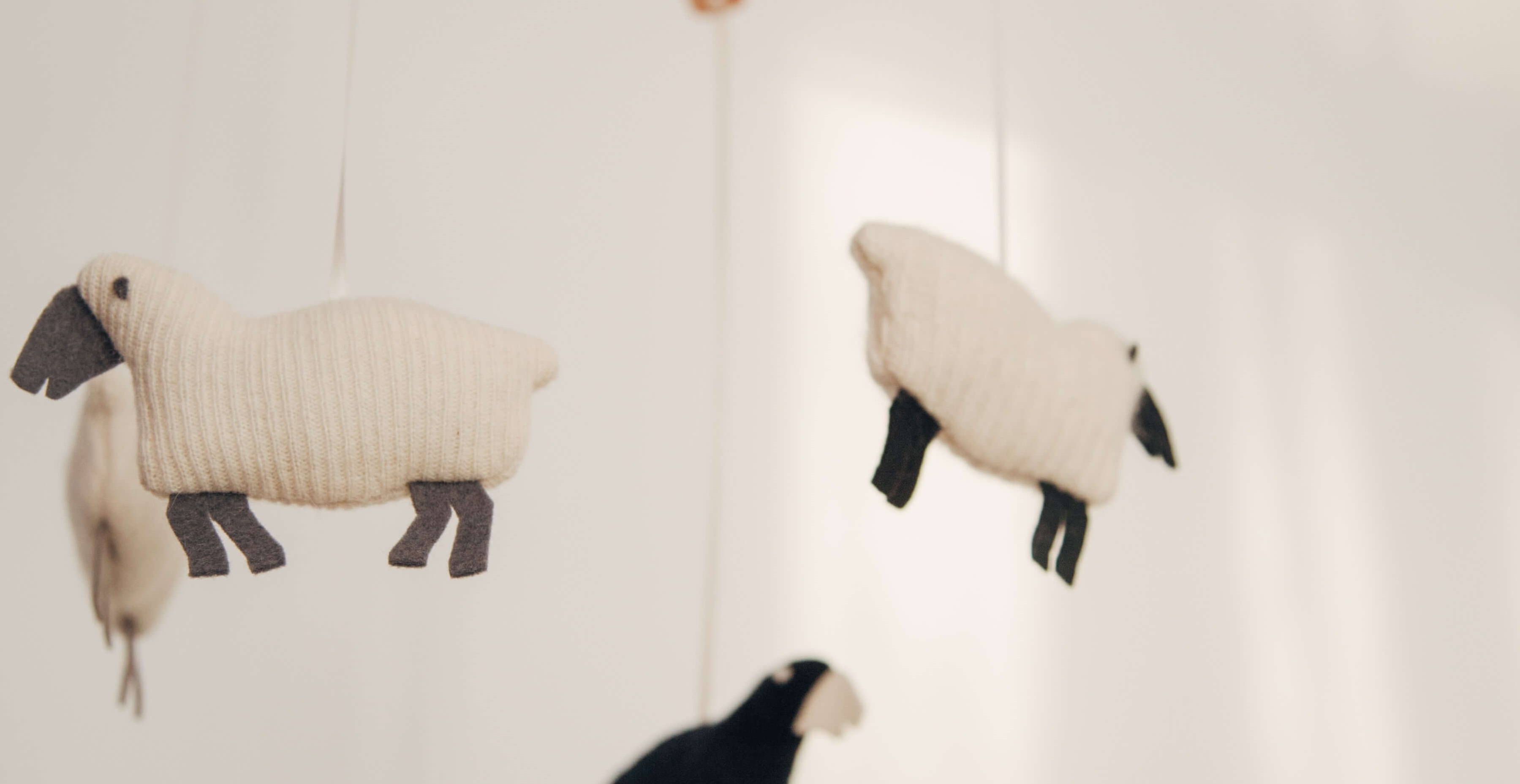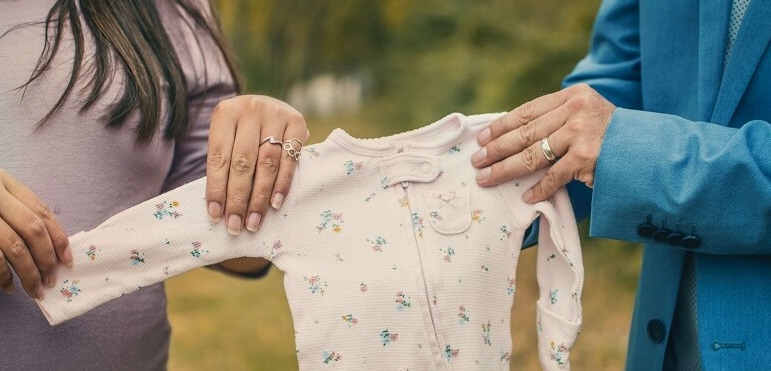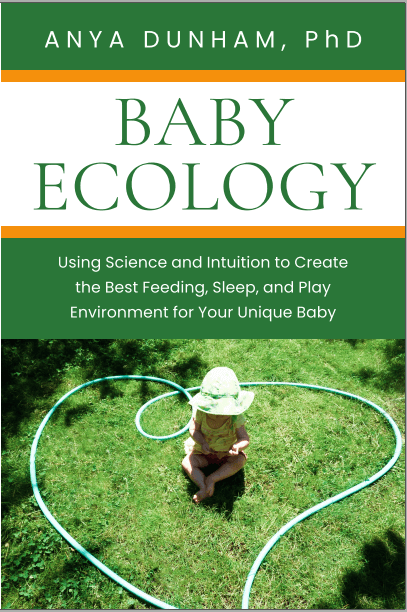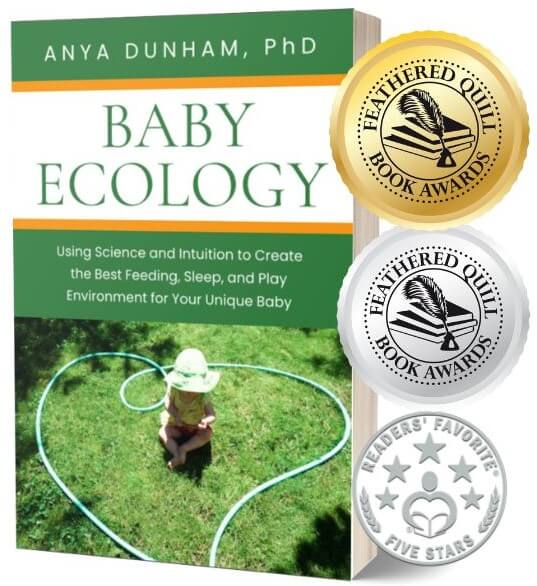Baby Ecology book is here! Learn more
Baby Ecology book is here!
- Home
- Getting Ready Checklist
- First year surprises
Taking care of baby: 4 challenges rarely mentioned in prenatal classes
by Anya Dunham, PhD
Top four taking-care-of-baby challenges I didn’t expect – and you might not either.

Most new parents getting ready to welcome their babies expect the lack of sleep (though many underestimate it — ask me how I know!). But taking care of your new baby also comes with challenges that you might not expect.
Here are my top 4 less-expected challenges of baby’s first year, paired with ideas to make your life as a new parent a little easier.
Surprise #1: Much of your exhaustion comes not from the lack of sleep, but from the incredible amount of attention you are now paying to another person
Why: Paying careful attention takes a lot of energy. And multitasking that comes with parenthood can be exhausting.1,2 It's exhausting because of the way the human brain handles multitasking: in short, it doesn’t! You can only truly focus on one thing at a time. It might seem like you’re accomplishing multiple things at once, but what you are really doing is quickly shifting your attention from one thing to the next which can be taxing — and stressful.3
Try this: Look for opportunities to catch a break when your partner or another trusted person is taking care of baby. Do something outside your home or at least in another room if you can, so you can feel truly “off duty”. When that’s not possible, try accepting tiredness rather than fighting it or wishing you could be more active or productive. As Karen Maezen Miller says in Momma Zen, “Be what you are… be tired.”
Guide your baby towards sound sleep – self-settling by smoothly linking sleep cycles – for more restful nights.
And as your baby grows, consider creating a 100% safe, enclosed play area your baby can explore independently (giving you a little break) or with you (giving you an opportunity to really notice what your baby is doing in a relaxed way, without worrying about safety).

Surprise #2: Advice that made sense before your baby arrived doesn’t work for your family
Why: There are many, many parenting techniques and approaches out there. Some of them are quite black-and-white: “Do this or else your baby will miss out and won’t thrive”. The things is, influencers have to make their approach black-and-white to differentiate their message from others and to make it “stick”. And so we, parents, receive a lot of strongly worded but very contradicting advice. This can be stressful: how do we know what’s best? And even when a specific technique or approach makes sense to us, it might not work for our baby (BLW is one example).
Try this: If we look to science, there are very, very few truly black-and-white answers; there is usually a range of good options. So when you are faced with a parenting dilemma, try to figure out what that range of good options looks like. Fortunately or unfortunately, maternal instinct is a myth: parenting knowledge doesn’t show up magically once our babies are born. But you can get evidence-based knowledge from health care professionals, scientific studies, and trusted guides. Then, you can choose the options that work best for your baby using your intuition – unique knowledge of what your baby is like and what he or she needs, knowledge that you develop and sharpen through day-by-day caregiving.
In this space and in my book, Baby Ecology, I look at hundreds of scientific studies to outline the optimal nurturing environment – that range of good options – for baby’s first year. Here is a 2-minute video explaining my approach; and here you can read more about it. I hope Baby Ecology saves you time – and gives you more opportunities to get to know, and enjoy, your baby.

Surprise #3: Babies don’t just outgrow night wakings
Why: Before I began reading about baby sleep, my thought process went something like this: babies wake because they need to feed at night; as they grow they feed less and wake less, eventually sleeping through the night. Right? It turns out, as you probably already know through reading or being with your baby, it’s wrong. Of course, baby’s need to feed at night gradually diminishes, but to sleep soundly babies also need their sleep structure to mature; they also need a balanced daily rhythm and an ability to connect their sleep cycles smoothly. Without that, babies who eat more during the day are less likely to feed at night but just as likely to wake.
Try this: Learning about sleep cycles and how baby sleep develops is the most important piece you need to truly understand baby sleep. If your baby seems to be fighting sleep, read why; and if your baby is around 4 months old, also read about the science behind the 4-month sleep regression. I hope these articles give you a foundation to guide your baby toward sound sleep. (And if you'd like an example, here is how we did it.)

Surprise #4: Learning how to be parents together can be a bumpy road
Why: Despite the fact that in most families today, both partners works outside the home, studies across 16 Western countries show that we spend more time with our children than parents in the 1960s did.4-6 (Turns out we do so by cutting down on ‘leisure’ activities. Top one of which is… sleep.5) This trend — increased time with our children — is true for both mothers and fathers. But the gender gap remains: mothers are generally doing more work — and feeling more of the stress — that comes with parenthood.5,7
Moms often, though not always, act as the primary parent and also carry most of the ‘mental load’ of parenthood: anticipate needs, obtain knowledge, identify options, make decisions, and monitor progress, essentially acting as family managers. They are likely to feel overworked, exhausted, alone, and as if they are responsible for any and all mistakes. Their partner may back off more and more thinking “mom is naturally better at it” (which is a myth); they engage less with the baby and feel less and less confident.
Try this: Science points to 3 things you can do to create a better balance within your family: learn together; work together but also apart (meaning each person is fully and consistently responsible for certain tasks start to finish); and appreciate each other. You will find more details here.

Did you experience these challenges? What else did you find surprising during your baby’s first year? Find me on Facebook or Instagram to let me know what you think - I would love to hear from you.
References
References
1. Craig L (2007) Is there really a second shift, and if so, who does it? A time-diary investigation. Feminist Review 86(1):149-170
2. Offer S, Schneider B (2011) Revisiting the gender gap in time-use patterns: multitasking and well-being among mothers and fathers in dual-earner families. American Sociological Review 76(6): 809-833
3. Spink A, Cole C, Waller M (2008) Multitasking behavior. Annual Review of Information Science and Technology 42(1): 93-118
4. Sayer LC, Bianchi SM, Robinsn JP (2019) Are parents investing less in children? Trends in mothers' and fathers' time with children. American Journal of Sociology 110(1): 1-43
5.Gauthier AH, Smeedeng TM, Furstenberg FF (2004) Are parents investing less time in children? Trends in selected industrialized countries. Population and Development Review 30(4): 647-671
6. Dotti Sani GM, Treas J (2016) Educational gradients in parents' child-care time across countries, 1965-2012. Journal of Marriage and Family 78(4): 1083-1096
7. Yavorsky JE, Dush CMK, Schoppe-Sullivan SJ (2015) The production of inequality: the gender division of labor across the transition to parenthood. Journal of Marriage and Family 77(3): 662-679
Using hundreds of scientific studies, Baby Ecology connects the dots to help you create the best environment for sleep, feeding, care, and play for your baby.
Warmly,
Anya


